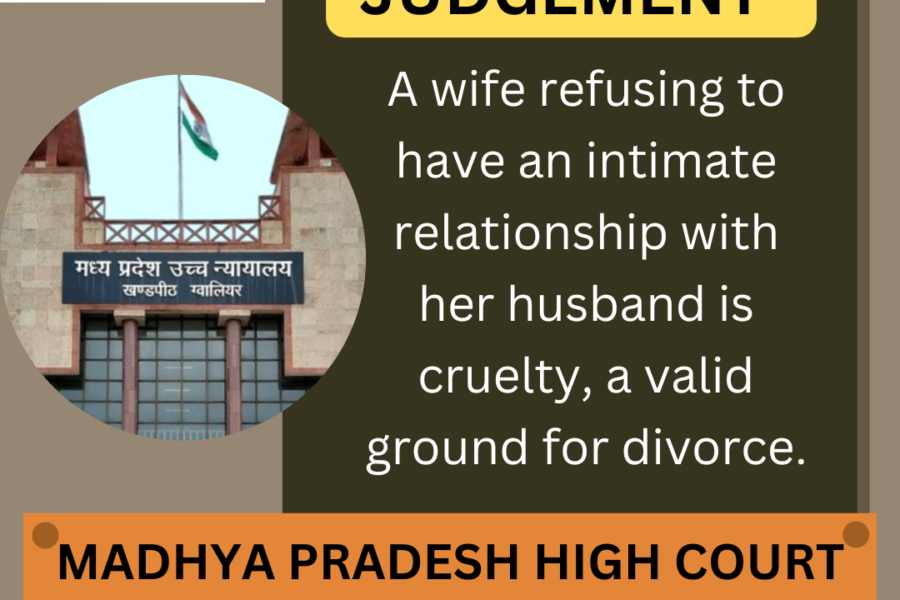Sudeepto Saha vs Moumita Saha
FIRST APPEAL No. 896 of 2014
According to a recent ruling by the Madhya Pradesh High Court, a wife’s refusal to allow her husband physical intercourse is considered mental cruelty. The court determined that this kind of behaviour gives a husband a legitimate reason to file for divorce under the Hindu Marriage Act.
A division bench made up of Justices Vinay Saraf and Sheel Nagu reversed a Bhopal family court ruling. In a decision from November 2014, the family court turned down a man’s divorce petition. The man claimed that his wife had committed mental cruelty by persistently refusing to have sex without a valid reason. The husband claimed that his actions qualified for a divorce under the Hindu Marriage Act, and the high court agreed, overturning the family court’s decision.
The court noted that from the day of the wedding on July 12, 2006, until the husband departed from India on July 28, 2006, the wife had continuously refused to complete the marriage. The bench emphasised that the wife’s unilateral decision to forgo sexual relations for an extended period of time without offering a good explanation was the reason the marriage had never been completed. The husband’s argument that the wife’s actions amounted to a denial of marital rights and provided substantial justification for filing for divorce under the Hindu Marriage Act was supported by this, the court said.
The Court further noted that, in spite of the husband’s unambiguous allegation, the wife did not refute his claim. As such, the court held that the husband’s claims and pleadings ought to be acknowledged and accepted in full rather than rejected. The husband’s right to file for divorce under the Hindu Marriage Act on the grounds that the wife refused to consummate the marriage constituted mental cruelty, and the court’s judgement of this was reinforced by the woman’s lack of protest.
The wife’s refusal to consummate the marriage could not be regarded as a legitimate reason for ending the marital tie, the court pointed out, indicating that the family court had erred in law. In contrast, the High Court acknowledged and upheld in its ruling that the wife’s refusal to participate in the marital act constituted a valid and appropriate justification for requesting the dissolution of the marriage in accordance with the Hindu Marriage Act.
The Court further noted that the wife had full knowledge that her husband would leave India not long after they were married. In spite of this knowledge, the wife refused to allow their marriage to be consummated in the brief time they had before his departure. This element probably contributed to the court’s conclusion that the wife acted willfully and without justification, which strengthened the husband’s argument that mental cruelty was a legitimate basis for the divorce.
“During this period, the husband was hopeful to consummate the marriage, but the same was denied by the wife and certainly this act (of wife) amounts to mental cruelty,” the court ruled.
As a result, it annulled and overturned the family court’s decision.
Adv. Khanak Sharma

